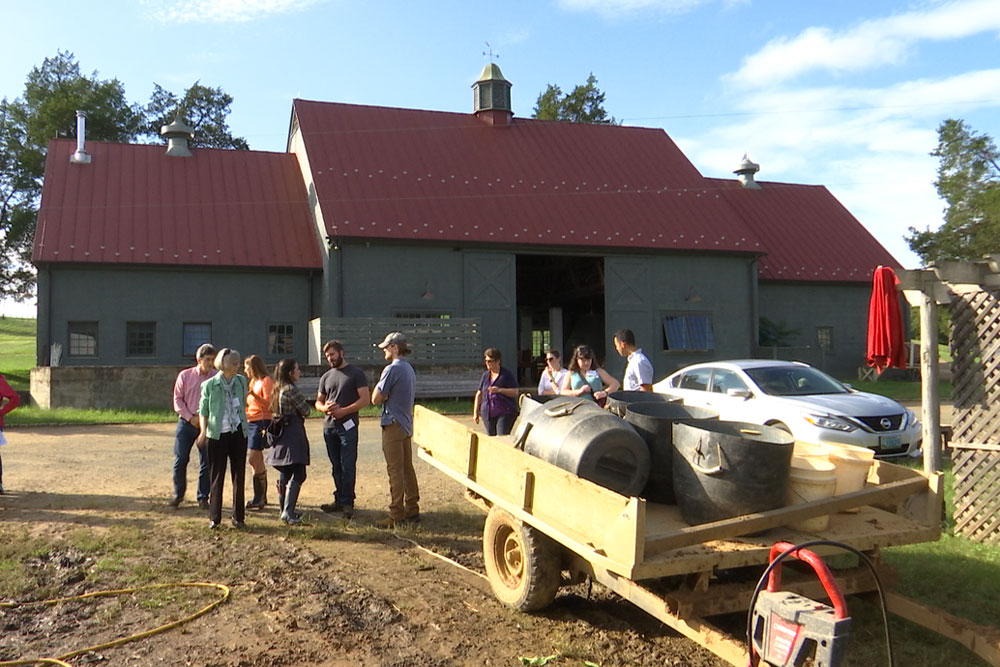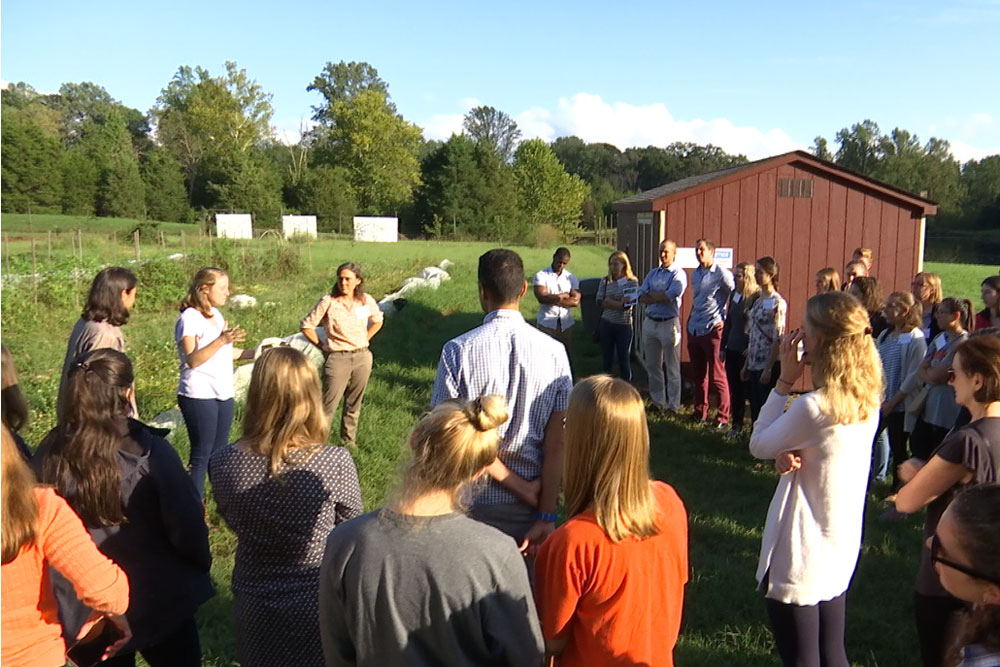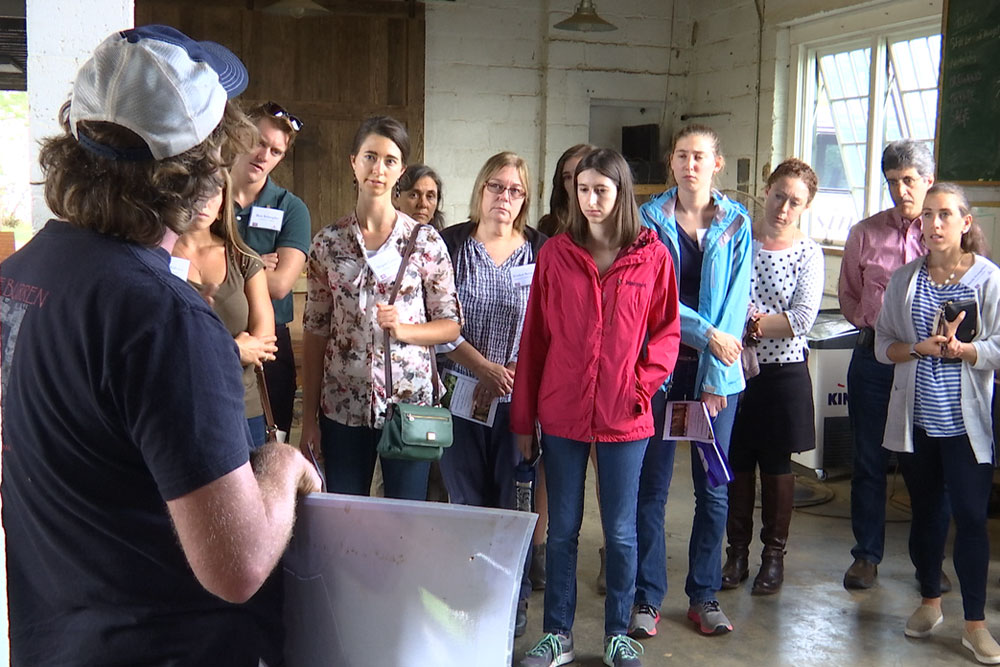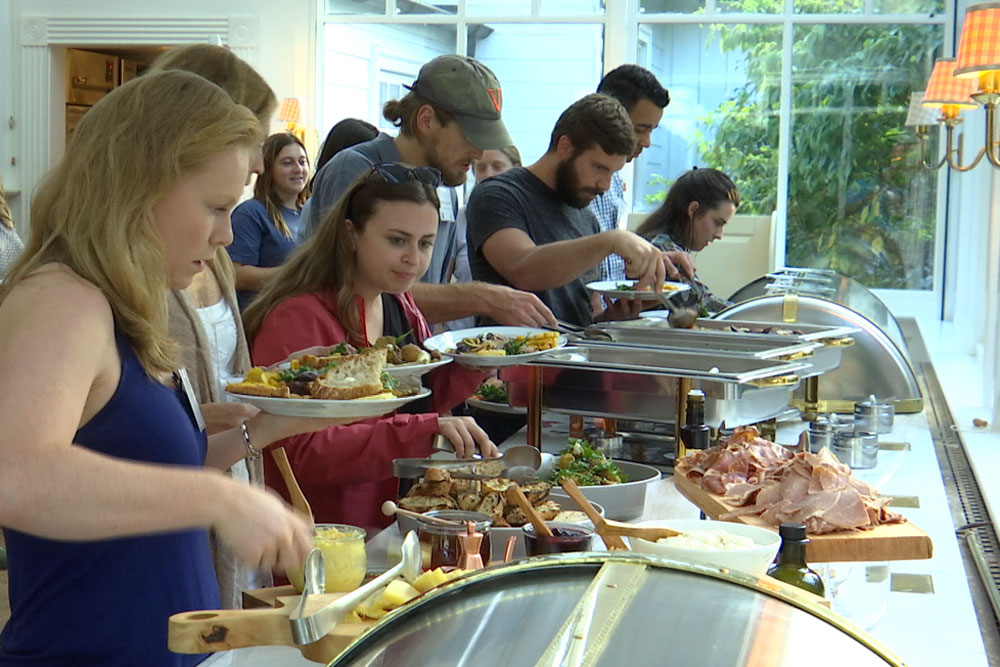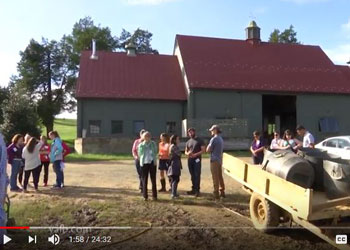Separating Food Fact from Fiction
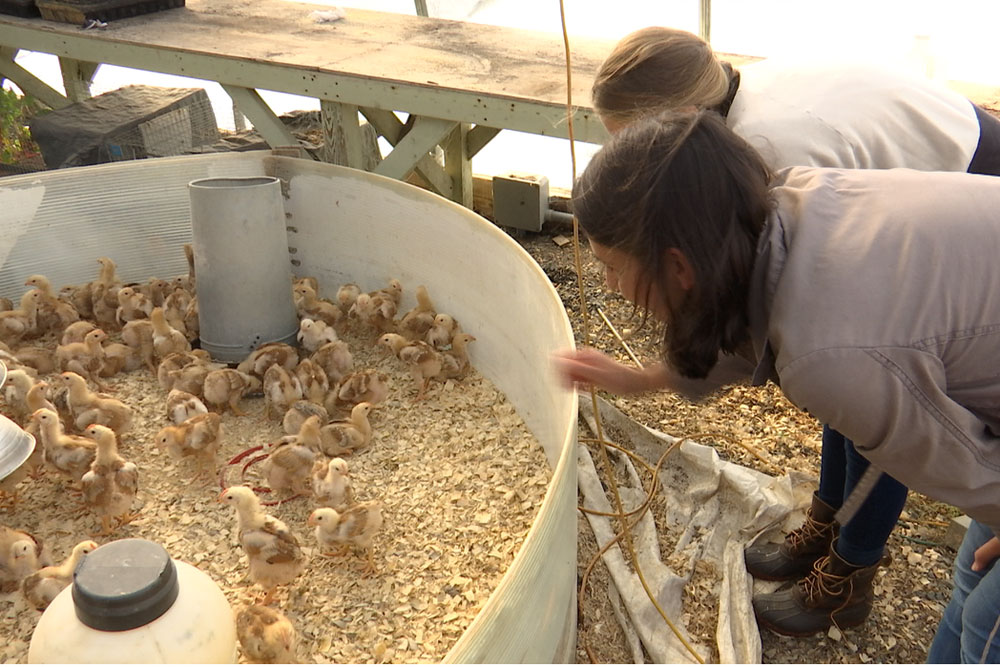
Genetically-modified, or not? Organically-produced, or traditional? And what, exactly, does the term “natural” imply?
Those were among the food-focused questions posed to a group of more than 50 UVA nursing and medical students and dietetic interns who attended a recent event at Morven Farms. After weeks of rain and under an unexpectedly sunny sky, students spent an afternoon touring two local farms, learning about food production and technologies, and hearing from local farmers and healthcare providers about food facts and myths.
To drive home the message that healthy eating can also be delicious, UVA Medical Center’s Department of Nutrition Services / Morrison Healthcare prepared a meal for the group crafted from locally-sourced foods.
Given that patients’ nutritional choices are influenced by recommendations from healthcare providers, explained nutrition expert Anna Maria Siega-Riz, it’s critical that healthcare students develop a solid foundation of nutritional know-how.
“Given that 80 percent of Americans say they’re confused about what foods to eat or avoid, this type of experience fills in students’ educational gaps."
Anna Maria Siega-Riz, a nutrition expert and UVA School of Nursing's associate dean for research
“Given that 80 percent of Americans say they’re confused about what foods to eat or avoid, this type of experience fills in students’ educational gaps,” says Siega-Riz, the School of Nursing’s associate dean for research, who points to the abundance of non-expert advice about food online. "Social media will not tell you what's healthy. If you just plug in as key search words, 'food,' 'eating healthy,' 'organic,' much of what you'll get isn't credible information from individuals who are well-trained."
For DNP student Gabriela Paniagua-Stolz, the visit to Morven reinforced her determination to ask detailed questions about patients’ diets and food security—critical factors, she said, especially for vulnerable populations.
“As providers, we have to know a lot more about nutrition,” said Paniagua-Stolz, who's studying to be a family nurse practitioner. “Most people are willing to make only minimal changes to their diets, and evidence shows you need to have a high impact and repetitive interventions [to forge change]. Once a year isn’t enough, but at a minimum, [conversations about diet] should be part of every annual assessment we do.”
For others, conversations with farmers felt personal.
"To have these farmers available to us to ask questions of, to show compassion for what they do," said master's in nursing student Becca Lessnoff, "really does translate to [us as] clinicians, who are super passionate about what we do."
Morven’s lessons also dovetailed neatly with other lessons, both in and out of the classroom.
“It was striking that the local farmers I talked to talked about shuffling their crops to fallow fields due to all the rain we’ve had lately,” added Paniagua-Stolz, who traveled with UVA Nursing faculty last January to Nicaragua where coffee farmers are also relocating crops due to climate change. “Two farmers, separated by great distance, talking about the same dynamics, and the fact that climate change is forcing them to plant elsewhere.”
In all, the Moven gathering offered a chance to listen, learn, ask questions of nutrition experts in a highly sensory, delicious way.
“Our hope was to offer students and interns a memorable, sensory experience so they might understand and become curious about food cultivation and production," said Siega-Riz. "Ultimately, when seeing patients of their own, these students will better understand the importance of referrals to nutritionists and dieticians who can counsel patients and offer tailored strategies about sustainable food choices for a lifetime.”
Co-sponsored by the Virginia Farm Bureau, Friend of the Farm, and UVA, the event also brought nutrition experts together, including Siega-Riz, Sibylle Kranz, a nutritionist and kinesiology professor from the Curry School of Education, Katherine Basbaum, a UVA Medical Center dietician, and providers, including physician Max Luna, who works with the Latino Community Health Initiative, and community health nurse and nursing professor Vickie Southall, a Louisa Food Bank board member.
###
